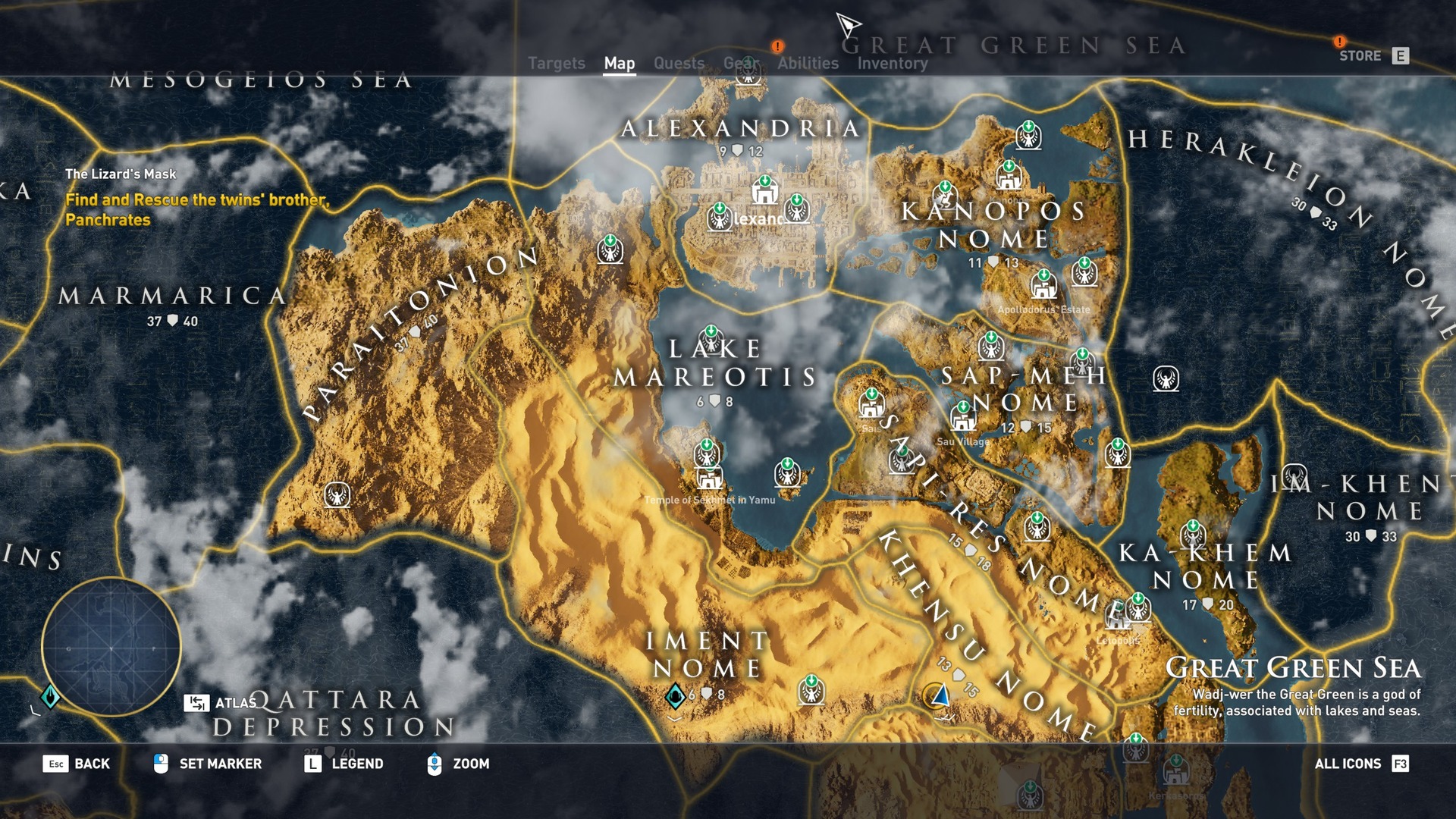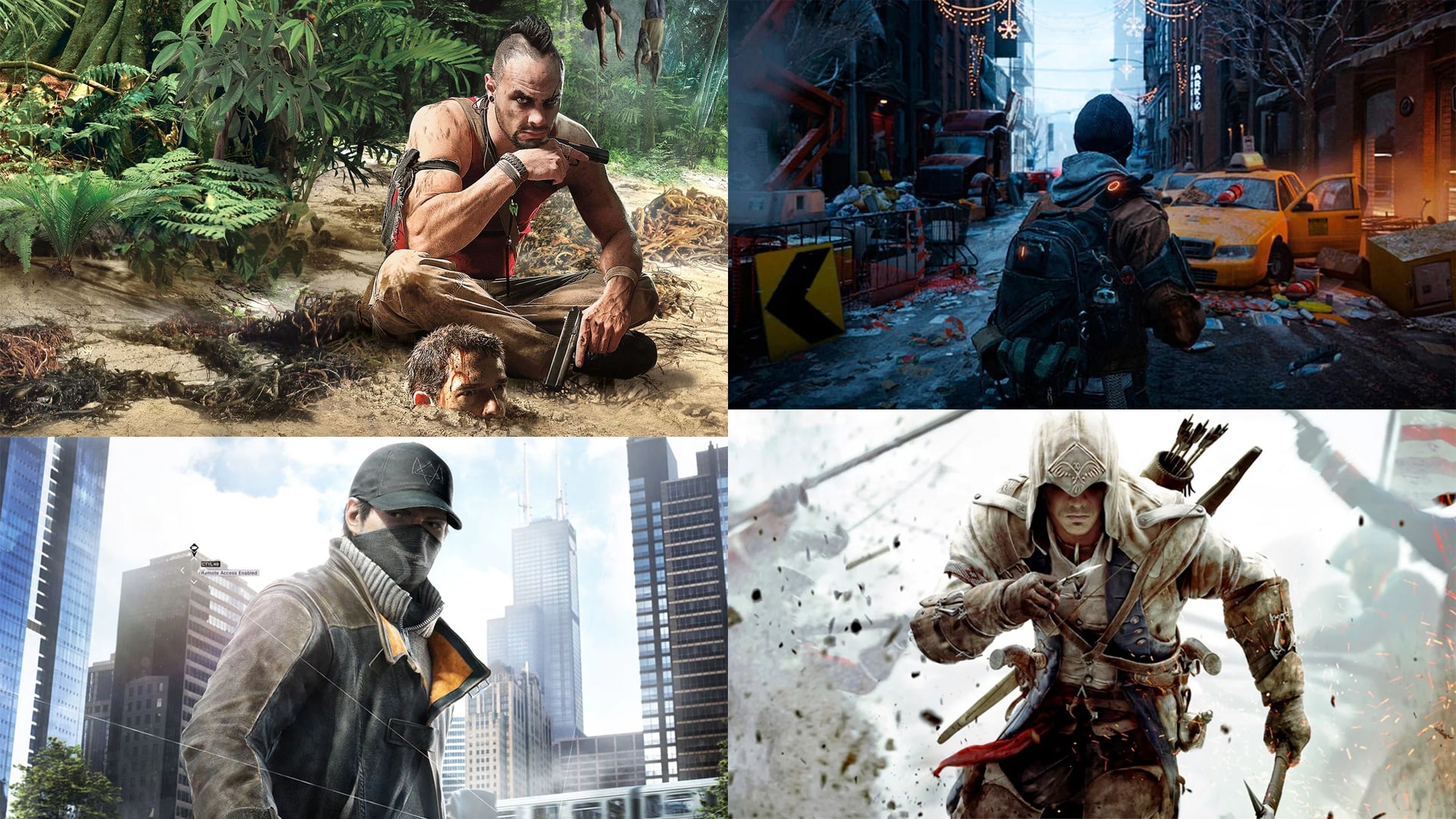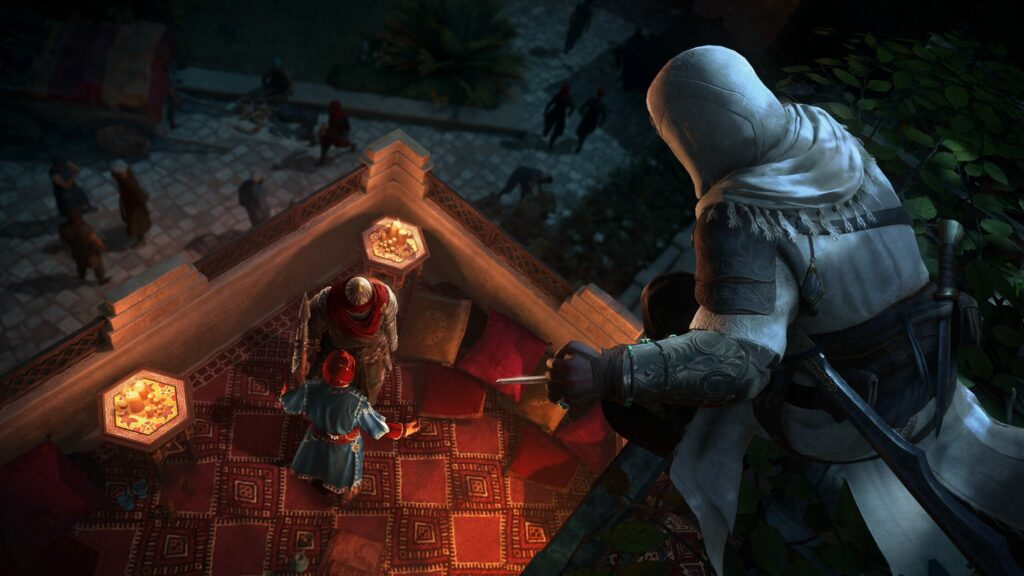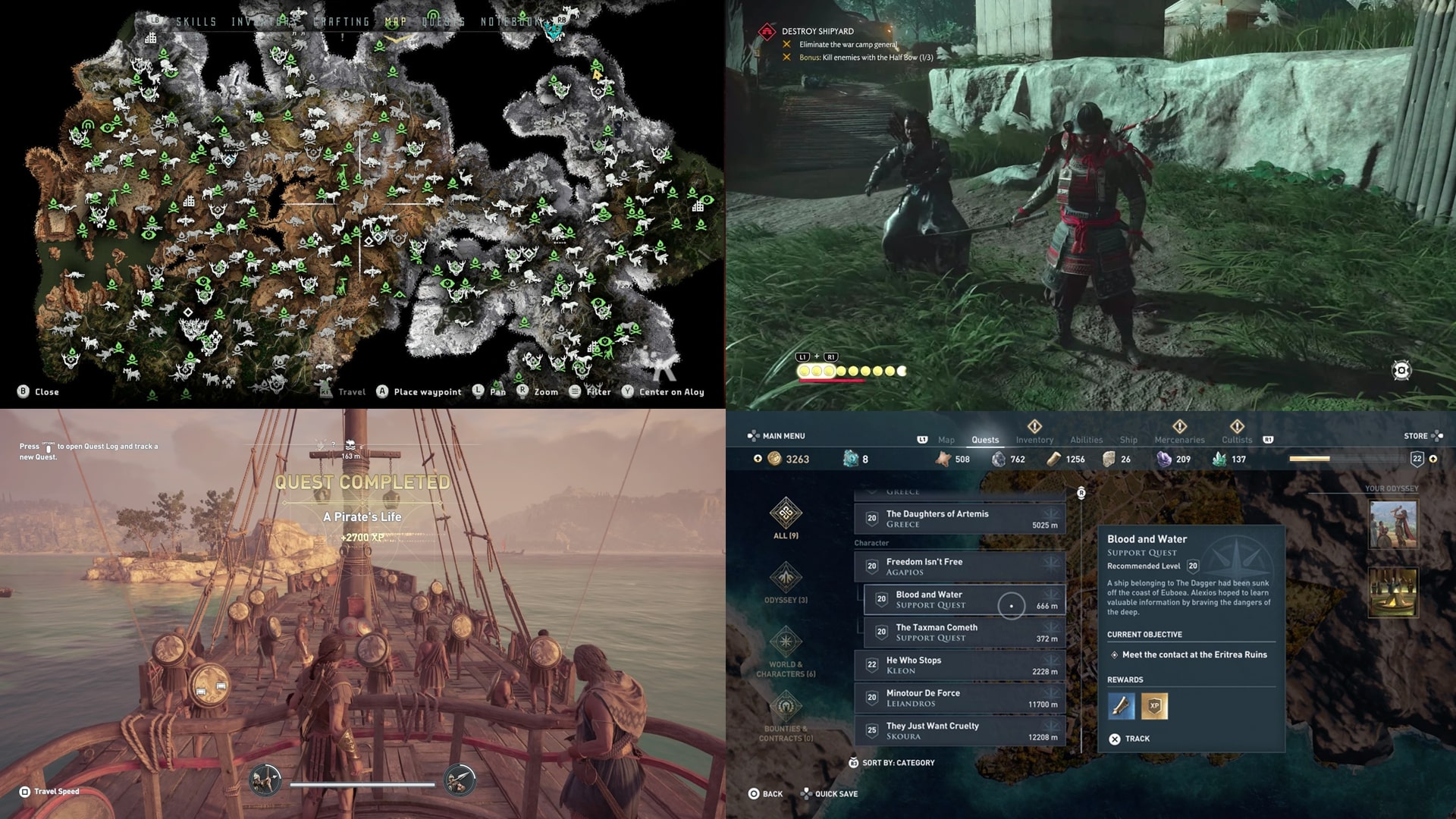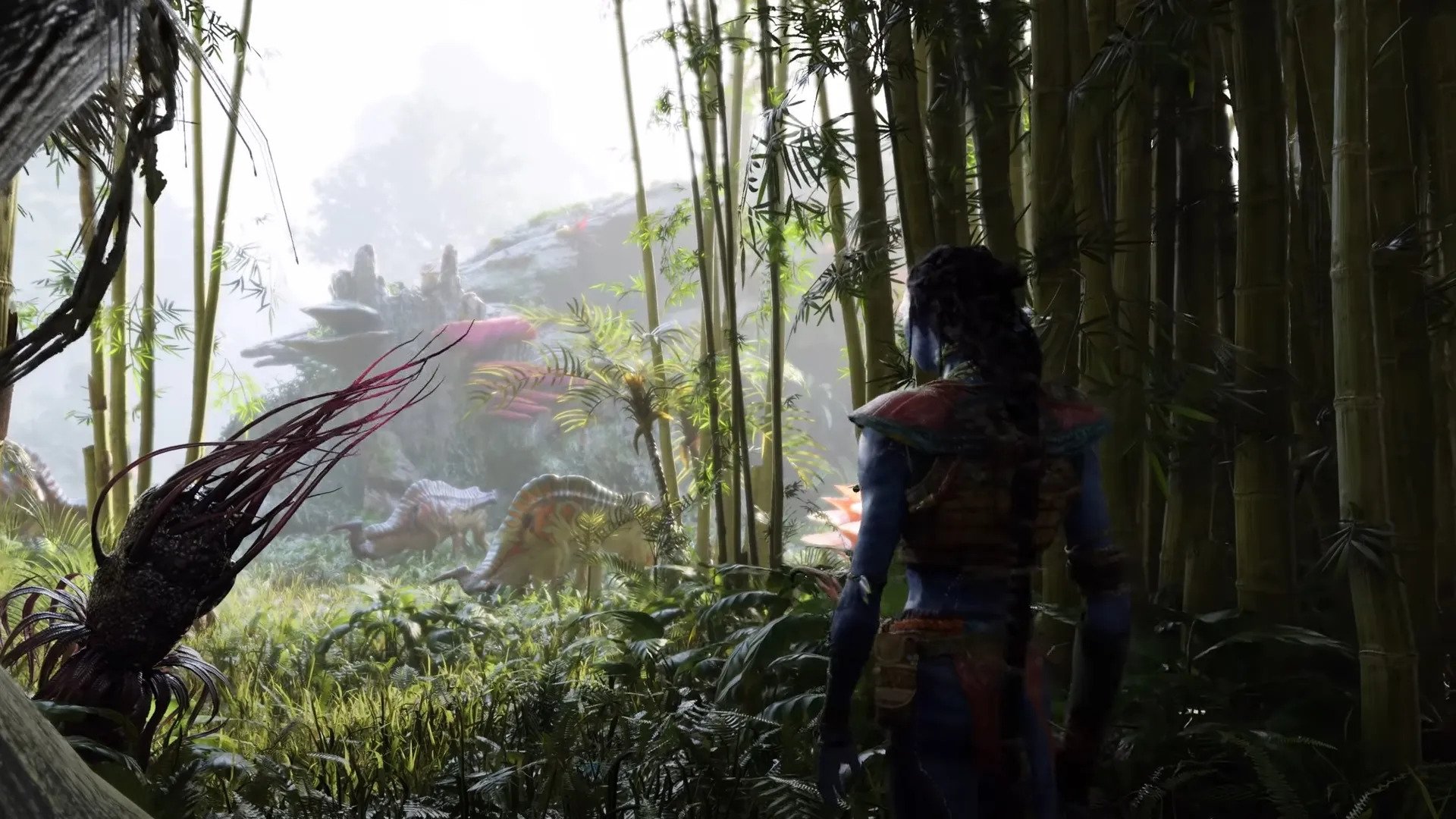- Ubisoft’s popular franchises need a major shakeup.
- The company should stop churning out similar games to capitalize on a boring formula.
- Avatar: Frontiers of Pandora’s reviews demonstrate how this formula held back an ambitious game.
Ubisoft, a major studio in the gaming world, has delighted players with beloved franchises such as Far Cry and Assassin’s Creed. Yet, their recent open-world games, like Far Cry 6 and Assassin’s Creed Valhalla, face a prevalent issue.
The once revolutionary formula has turned into something generic, lacking purpose and excitement. This begs the question: Is it time for a departure from the conventional Ubisoft-style open-world game?
Before discussing the drawbacks of this sub-genre, it’s important to recognize the achievements of developers at the company. They’ve delivered notable titles that break this formula, such as UbiArt games (Child of Light, Rayman Origins, and more).
However, it is becoming increasingly clear that their open-world action-adventure formula is predictable, especially when compared to trendsetting games like The Witcher 3 and Red Dead Redemption 2.
Why it matters: This French studio was once known for leading the charge for open worlds. A decade ago, many studios were rushing to copy its approach, yet the studio appears to be shackled by its own foundations today.
The Downfall of Ubisoft’s Open-World Games
Assassin’s Creed 2 showcases the studio’s early expertise in creating innovative worlds. The detailed maps, seamlessly connected through viewpoints, offered players a purposeful exploration experience.
The charm of Florence was captured in every detail, providing a genuine scale without unnecessary bloat. Sequels like Black Flag continued this legacy, introducing new mechanics while maintaining a high standard in world design.
Far Cry 3, another highlight in the developer’s collection, blended a compelling story with a world full of outposts, adversaries, and stunning landscapes. The inclusion of towers, a signature Ubisoft feature, added to the overall appeal.
However, subsequent entries like Far Cry 4 displayed signs of gameplay limitations despite commendable artistic direction. Lately, Ubisoft appears stuck in the pattern of bloating worlds with unnecessary content, resulting in extended and uninspiring gameplay.
The repetitive tower-climbing routine found in numerous titles creates a monotonous cycle, creating a bland experience. The surplus of unremarkable side quests, notably in recent Assassin’s Creed games, adds to the sense of boredom.
The bloat, while present in past games, was negated by the thrill of a new type of open world. I feel this was the case for all of the French gaming giant’s IPs, whether it be Assassin’s Creed, Far Cry, or Watch Dogs.
With the novelty of this approach wearing off a decade later, the excitement has turned into monotony.
Problems With The ‘Ubisoft Formula’
This formula unfolds in a vast sandbox world that gradually reveals itself. The player’s journey includes climbing towers, solving puzzles, conquering camps, collecting various items, and participating in fetch-style side missions.
All these activities center around a story typically focused on overthrowing a controlling force in a region. While the pioneers set the stage, the likes of Far Cry, Assassin’s Creed, and Watch Dogs inundated the market, introducing repetitive design tropes.
The notorious ‘towers’ mechanic, popularized by Ubisoft, became a cliché, saturating open-world games with predictable map exploration and outpost clearing. As the French gaming giant tries to imitate the success of expansive RPGs like The Witcher 3, the developer misses the crucial aspects.
Instead of prioritizing detailed characters and branched storylines, the focus shifts to making oversaturated worlds with repetitive tasks that can keep players busy for hours on end.
This approach is evident in titles like Assassin’s Creed: Valhalla, attempting to blend the ‘Ubisoft formula’ with The Witcher’s depth but ultimately becoming a monotonous trek through repetitive side content.
Repetitive Landscape With No Detail
My disappointment deepened as Ubisoft’s open-world games followed a predictable pattern – empty maps, familiar crafting systems, and a repetitive loop of clearing enemy bases. Games like Assassin’s Creed Mirage highlight the problem further, presenting a traditional experience marred by the bloat of more modern Assassin’s Creed games.
In the pursuit of player engagement, many Ubisoft open-world games lack the crucial element of detail. Assassin’s Creed Valhalla and Far Cry 6, though visually striking, struggle to craft a detailed open world beyond a few cities.
In contrast, titles like Elden Ring and Red Dead Redemption 2 offer densely packed worlds that feel alive with surprises at every turn. As open-world games advanced, the standard for player freedom was elevated.
It’s Time To Evolve
Developing an outstanding open-world game goes beyond ticking boxes on a big map. The gaming scene has changed, with games like Elden Ring redefining freedom and Metal Gear Solid V bringing dynamic action-stealth gameplay to an open-world sandbox.
The prevalence of the Ubisoft-style open-world game has created a weariness reminiscent of the corporate pressures experienced during the holiday rush in a shopping mall.
Even titles like Marvel’s Spider-Man 2 have been criticized for relying too much on this formula. While Insomniac can counter the generic open-world design through an electrifying traversal system, most games do not have this liberty.
The inherent structure, liberating outposts to unveil mundane challenge quests, reflects an approach that feels out of touch. Sure, Ubisoft is still successful, with Assassin’s Creed Mirage being its biggest current-generation launch.
However, it’s time for Ubisoft to understand that creativity shouldn’t be compromised for financial success.
Conclusion
Introducing a new setting can be a good start, but Ubisoft needs more than a surface-level makeover. Simply applying the ‘Ubisoft tower’ formula to the upcoming games could make them blend in with past titles.
This is precisely why Avatar: Frontiers of Pandora received mediocre reviews despite being acknowledged for its excellent visuals and art direction.
Next year’s Star Wars Outlaws requires distinctive and unique gameplay elements to distinguish itself from Ubisoft’s typical open-world games.
The addition of sci-fi elements and non-traditional traversal should already help the game move away from these tropes but won’t do much if the map is once again littered with hundreds of collectibles and objectives from the beginning.
Thank you! Please share your positive feedback. 🔋
How could we improve this post? Please Help us. 😔
Passionate gamer and content creator with vast knowledge of video games, and I enjoy writing content about them. My creativity and ability to think outside the box allow me to approach gaming uniquely. With my dedication to gaming and content creation, I’m constantly exploring new ways to share my passion with others.


